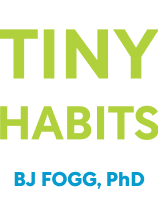

This article is an excerpt from the Shortform book guide to "Tiny Habits" by BJ Fogg. Shortform has the world's best summaries and analyses of books you should be reading.
Like this article? Sign up for a free trial here .
Are you looking for Tiny Habits quotes? How can these quotes help you better understand the concepts from the book?
Tiny Habits by BJ Fogg is a book about how changing behavior starts with tiny steps. Here are five quotes from Tiny Habits that discuss and explain the main concepts in the book.
Continue on for Tiny Habits quotes from BJ Fogg.
Tiny Habits Quotes
In Tiny Habits, Stanford behavioral scientist BJ Fogg argues that the best way to change behavior is to start small. Fogg encourages us to drop any moral judgment about “good” and “bad” habits and view our behavior scientifically, using specific behavior design skills to engineer lasting changes.
Below are five Tiny Habits quotes by BJ Fogg:
“After you put your feet on the floor in the morning, immediately say this phrase, “It’s going to be a great day.” As you say these seven words, try to feel optimistic and positive.”
This quote is from Fogg’s Maui Habit. Fogg invented this habit in Maui and has taught it to thousands of people at his boot camps. It’s a good way to start the day on a positive note.
Recipe:
* After my feet touch the floor in the morning,
* I will say, “It’s going to be a great day,” while feeling confident and optimistic.
* To celebrate, I will smile.
Try incorporating this habit into your morning routine. Experiment with the recipe that works best for you.
You can change the anchor: “When I open my eyes…” or “When I look in the mirror…”
Adapt the habit to your circumstances. You don’t want this to feel fake. So if you know you have a challenging day ahead, you can use uncertain intonation and say, “Well, something great is going to happen today…”
“Celebrating small wins gives them something to repattern our life around.”
Celebration is incredibly important in Tiny Habits. In fact, celebrating well is a habit in its own right, one that we can cultivate to make us happier, more resilient, and nicer to be around. A genuine celebration immediately after you do your habit helps your brain to encode and automatize the behavior sequence, so it’s important not to skip this step.
“In order to design successful habits and change your behaviors, you should do three things. Stop judging yourself. Take your aspirations and break them down into tiny behaviors. Embrace mistakes as discoveries and use them to move forward.”
Wobbles—even faceplants—are part of the Tiny Habits process. Babies fall all the time when they’re learning to walk, but it doesn’t hurt much because they’re already close to the ground. If you don’t succeed with your new habit the first time, you’re not a failure: Just stand up, tweak something, and try again.
“Practice these six new habits for one week, revising and rehearsing as needed. (If you don’t like a new habit, discard it and add something else.)”
The Behavior Design process is like an experiment. Play around with the sequence and modify things as you go. If your tiny habit isn’t working, go back to your Swarm of Bs and pick another one. If the prompt you’ve chosen is unreliable or if you’ve become good at ignoring it, pick another one. Remember that if a new habit fails, the problem isn’t you—it’s how the habit has been designed.
“So many frustrating family dynamics and workplace dramas erupt because of the misplaced belief that manipulation motivation is the key to changing behavior. But now you know that simplicity is what reliably changes behavior.”
When trying to change other people’s behavior, our tendency is to focus on motivation first.
Flip this. Use the following sequence to troubleshoot behaviors in others.
- Check the prompt. Ask them: Do you have an adequate reminder?
- If the behavior doesn’t change, check ability. Ask them: What’s making this difficult for you?
- If the behavior still doesn’t change, consider motivation. Explain why the behavior is important. Consider introducing rewards or punishments (if appropriate).

———End of Preview———
Like what you just read? Read the rest of the world's best book summary and analysis of BJ Fogg's "Tiny Habits" at Shortform .
Here's what you'll find in our full Tiny Habits summary :
- How you can successfully create new habits that stick
- Why you don't need motivation, just science
- Why even flossing one tooth should be considered a victory






